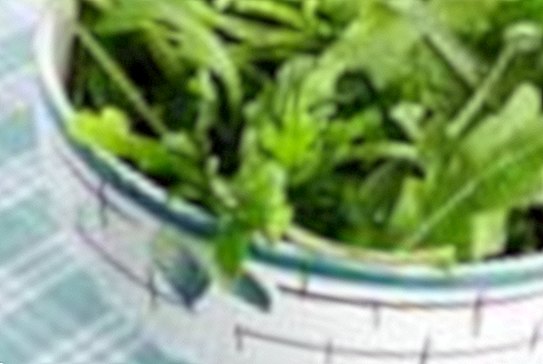Alert salad: how toxic is rocket salad?

What happened?
In a plus market near Hanover, a buyer in a pack of rocket had that Common ragwort (or ragwort) recognized. He bought as a precaution all other packs and sent them to the Pharmaceutical Institute of the University of Bonn for investigation. There they found up to 2500 micrograms of poison from the herb. The legal limit is one microgram. Do consumers have to worry now?
How dangerous is it to buy rocket? Six questions.
Have more packs of poisonous plants been found?
"The case at hand was a rocket from a South German producer, and we have arranged for its operation to be checked immediately by the authorities," says Nils Meyer, spokesman for the Food Inspection Region Hannover. In the Hanover region, we checked all Plus stores and randomly selected other grocers who were supplied by the grower - without anything being found. "
How does the poisonous plant get into the rocket?
"The ragweed grows anywhere that is not sprayed and rarely mowed, for example, on roadsides and on pastures," said Demeter spokeswoman Renée Herrnkind. "It is also desirable that nature can develop freely." The downside: When the herb blooms, the seed is spread by the wind and lands on agricultural land. Because ragweed looks very similar to rocket, it is not as noticeable here as between other types of lettuce.
Can ragwort also cheat under organic rucola?
"Ragwort also grows on organic fields, but is sorted out during the harvest," says Thomas Sannmann, organic gardener in the Vierlanden south of Hamburg. In addition, organic crops are much smaller, the employees harvest the rocket by hand and sort out the ragweed immediately. They are specially trained for this. "Conventional rocket grows today on huge areas, especially in the Palatinate and in Italy, it is harvested by machine and packaged, because the poisonous plant can ever be in between.
How dangerous is the Crested or Ragwort?
The common Greiskraut can cause life-threatening liver damage in humans, according to the Federal Institute for Risk Assessment (BfR) in a statement from 2007 with download. One of the ingredients, Riddelin, is categorized as "presumably carcinogenic to humans" by the International Agency for Research on Cancer (IARC). According to BfR, it is not yet possible to set a daily maximum intake limit for humans that does not cause any damage to health. It would be best, as a precaution, to take no ragwort at all. However, one would have to eat the herb daily and permanently to exceed the drug tolerable dose of 0.1 micrograms of "unsaturated PA" per day (this is the dangerous substance in ragwort).
How can you recognize the poisonous plant?

The differences are easy to recognize. The leaves of the ragwort (picture) are darker, appear coarser and the petioles are not as bright and pronounced as the rocket. At the latest when you taste the wrong Fuffziger should recognize: ragwort tastes unpleasant and bitter.
Should one better do without rocket?
Everyone has to make that decision for themselves. Panic is also not announced, especially since one can be careful and with organic goods apparently on the safe side. The monitoring authorities also want to take a closer look at rocket. Meanwhile, the growers in the Palatinate have founded a community of interests. At www.ig-qualitaetsrucola-pfalz.de they seek dialogue with unsettled consumers. The producers of the "IG Rucola" work according to own statement with the nature and not against it. Despite intensive security and control measures before, during and after the harvest, there can be no one-hundred-percent guarantee that no foreign plant will ever get into the salad. It is done very much that the goods leave the farms of the producers of the IG "foreign plant-free". The probability of finding ragweed in Rukola is likely to be similar to tapping six rightists in the lottery.
ChroniquesDuVasteMonde.com: All topics at a glance










